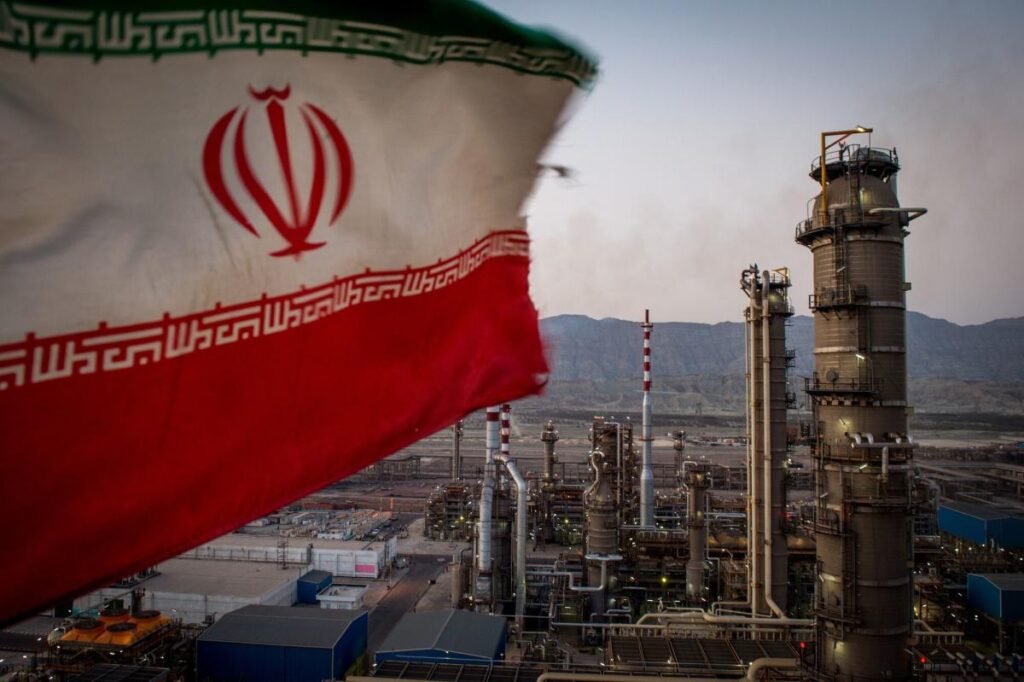Oil prices experienced a notable surge following reports that Iran may be preparing to launch an attack on Israel from Iraqi soil imminently, reigniting concerns over geopolitical tensions in the Middle East. Reports indicated that Brent crude jumped by as much as 2%, surpassing the $74 per barrel mark, while West Texas Intermediate approached $71. The potential strike, as reported by Axios, would involve militias supported by Tehran in Iraq deploying drones and ballistic missiles against Israeli targets. This development turned market attention back to the risks of conflict in a region known for its volatility, particularly after a sharp decline in oil prices early in the week due to a limited Israeli counterattack against Iran in response to a missile assault on October 1.
Earlier in the week, oil prices had seen a decline after the Israeli military engaged in a restrained operation against Iran. Investors had initially interpreted the circumstances as a de-escalation in tensions, leading to a quick unwinding of the war premium that had previously inflated oil prices. Nonetheless, Standard Chartered Plc cautioned that the markets might be responding too nonchalantly to the evolving situation, highlighting that signs of escalating hostilities should not be disregarded. Despite some signals that conflict might ease—such as Israel’s willingness to consider a US-led plan to stabilize the situation in Lebanon—the potential for violence still looms large. The Israeli military firmly stated its readiness to respond forcefully should Iran take further aggressive actions.
Analysts like Vandana Hari, founder of Vanda Insights, expressed that while market reactions are reflective of escalating tensions, neither Israel nor Iran appears willing to engage in actions that would escalate into an all-out war. The current posture from both nations suggests a calculated approach aimed at avoiding wider regional conflict. This sentiment underscores the precarious balance of power in the Middle East, where each action is weighed against potential repercussions that could destabilize an already fragile geopolitical landscape.
As the market digests these developments, traders are also eyeing several imminent events that could influence oil prices significantly. Upcoming moments such as the U.S. presidential elections, a pivotal meeting of China’s top legislative body, and an OPEC+ decision slated for December regarding the gradual revival of oil production will be key focal points. Each of these events carries implications for global oil demand and supply, which are intricately tied to geopolitical stability. The market is keenly aware that shifts in sentiment regarding these events could either exacerbate current tensions or lead to a realignment of production strategies.
Furthermore, the broader implications of any conflict in the Middle East on oil supply channels are particularly concerning for global markets. The region is crucial for oil transportation, making any hostile actions potentially disruptive not only to oil prices but also to overall energy security. The vulnerability of supply lines, compounded by geopolitical maneuvers, creates a dynamic environment where traders must remain vigilant and adaptable to sudden changes in the market landscape. The relationship between supply security and political stability is ever-present, as demonstrated by the current rise in oil prices due to rumors of impending conflict.
In summary, while the immediate ascent of oil prices can be attributed to heightened tensions following reports of Iran’s potential strike against Israel, the underlying factors influencing the market are multifaceted. The interplay of geopolitical risks, potential military actions, and significant economic events set against a backdrop of economic demand considerations will continue to shape the energy landscape. Investors and analysts alike will need to remain focused on developments in the Middle East and be prepared for volatility as implications for oil pricing evolve amidst a complex web of regional and global influences.

